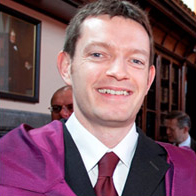Conor O'Mahony, JD

Role: Senior Lecturer, University College Cork
Ireland
Contact: conor.omahony@ucc.ie
Research Interests:
Constitutional Law
|
Direct Democracy
|
Children's Rights
|
Education Law
|
Special Educational Needs
|
Religion and the Law
Conor O’Mahony lectures in constitutional law and child law at University College Cork in Ireland. He specializes in issues surrounding constitutional rights in the areas of family law, child law and education law, with a broader interest in constitutional theory and constitutional interpretation. Initially his academic work focused on the area of educational rights, including the rights of children with special educational needs; parental rights; religions freedom in the education system; and the question of how courts can enforce rights when their implication requires the allocation of substantial resources. More recently, Conor has worked on issues children’s rights and the legal recognition of non-traditional family units, as well as theoretical debates surrounding the ideas of living constitutionalism and human dignity.
O’Mahony’s publications include his book, Educational Rights in Irish Law (Thomson Round Hall: 2006), and his recent articles for international journals, such as the International Journal of Constitutional Law ("There is No Such Thing as a Right to Dignity", forthcoming), the International Journal of Law, Policy and the Family ("Irreconcilable Differences: Article 8 ECHR and Irish Law on Non-Traditional Families, Issue 1, 2012), and Public Law("Constitutionalism and Legislation in Special Educational Needs Law: An Anglo-Irish Comparison", 2008). He has spoken at conferences in Ireland, the UK, Canada, South Africa and Turkey and has guest lectured in Germany and Norway.
O’Mahony visited Emory in conjunction with his research on a comparative study of same-sex marriage litigation in the US and Ireland. This project will particularly focus on the relationship between direct democracy and judicial review in such cases. The research examines whether judges factor the possibility of their decision being overturned by referendum into their calculation as to how deferential they should be; and if so, whether this calls for more or less deference.

